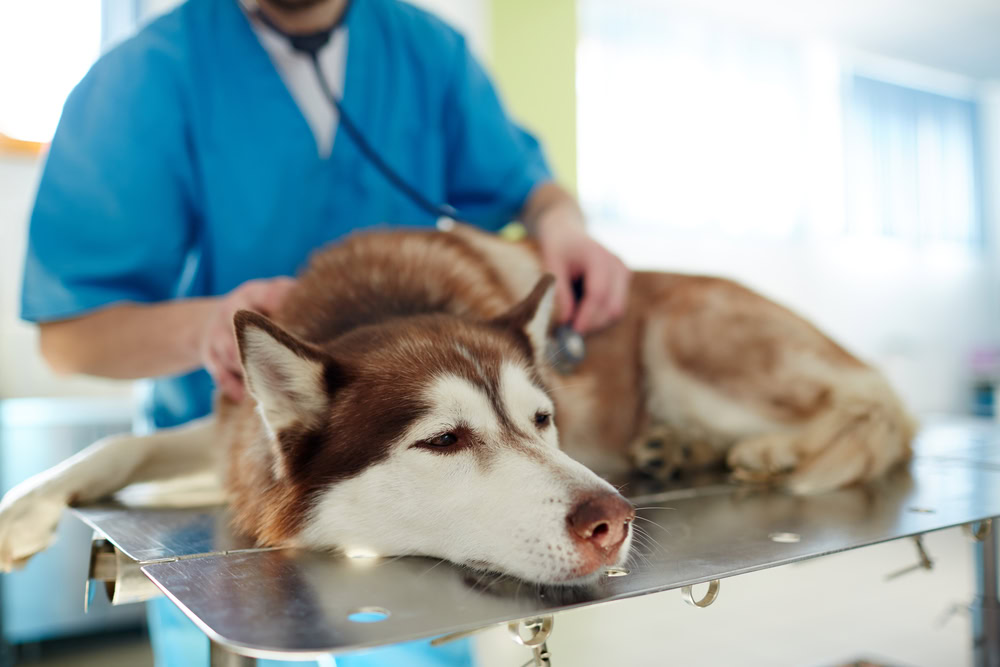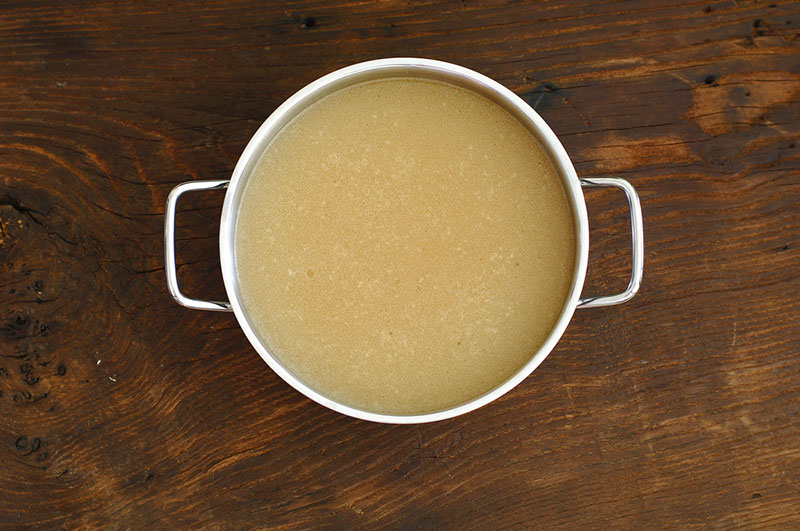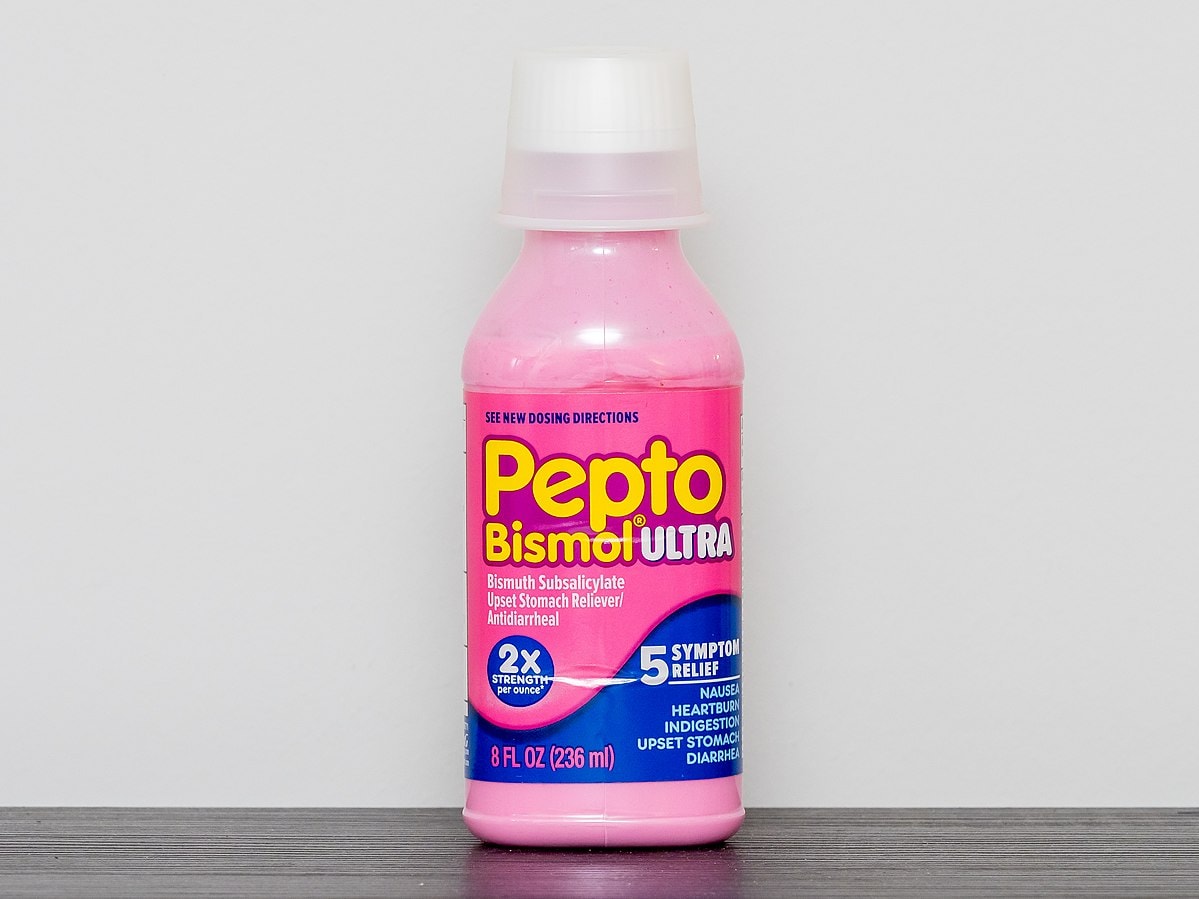VET APPROVED

The information is current and up-to-date in accordance with the latest veterinarian research.
Learn more »Click to Skip Ahead
Unfortunately, our furry four-legged friends can’t communicate their feelings in the same ways that we can as humans. So, if your dog has an upset stomach, it may take a bit of detective work to track it down as the culprit.
Some dogs may have dietary sensitivities, others may catch an infection, and others may have eaten something they shouldn’t. So, it’s not uncommon for a dog to get an upset stomach and it’s important to know what to do when it happens. So, what about Pepto-Bismol? Can you give it to your dog to aid with stomach issues? Pepto-Bismol can be given to dogs in certain cases, but only under a veterinarian’s supervision and in small doses.

Can You Give Dogs Pepto-Bismol?
While small doses of Pepto-Bismol can be used for dogs in certain situations, its administration should always be supervised by a veterinarian. Pepto-Bismol or “Pepto” as we often refer to it, is known for its bright pink color and contains the active ingredient bismuth subsalicylate. According to their website, it was originally created at the start of the 20th century to treat the symptoms of cholera and was called Mixture Cholera Infantum.
Pepto-Bismol might be prescribed by vets for dogs suffering from digestive issues, such as diarrhea or a Helicobacter pylori infection. However, it’s important to follow the recommended dose, since ingestion of high doses of salicylates can result in toxicosis. Pepto has not been approved by the U.S. Food and Drug Administration (FDA) for use in dogs.
You should not give your dog Pepto-Bismol unless it is recommended by your veterinarian. Your dog’s digestive signs should be assessed by a veterinarian to determine the severity and the best course of action. Pepto-Bismol is not recommended for cats.


What Causes Stomach Upset in Canines?
There are many reasons why dogs may get an upset stomach, some are less significant, while others are serious and should not be ignored. An upset stomach may manifest as your dog feeling nauseous, lip licking, off food, retching, vomiting, gassy, or having diarrhea. It is not recommended to judge on your own your dog’s gastrointestinal signs. Reach out to your vet to determine what is the best course of action for your dog.
Poisonous Plants
Dogs are naturally curious, and some plants will attract their attention, for example, because they simply smell tasty or appear to be food. But there are many plants that can cause poisoning in dogs, and many will also cause issues with cats and other pets. Many of these plans are common houseplants. So, before you plan your indoor garden or room decor, be sure to note which ones may be hazardous to your dog.
Here are some toxic plants that can cause vomiting and other digestive signs:
- Cyclamen (Cyclamen species)
- Mistletoe (Phoradendron flavescens)
- Giant Dracaena (Cordyline australis)
- Dumbcane (Dieffenbachia)
- Oleander (Nerium oleander)
- English Ivy (Hedera helix)
- Peace Lily (Spathiphyllum)
- Aloe (Aloe vera)

Abrupt Food Changes
You can also cause an upset stomach if you introduce a new diet to your dog too fast. If your dog is used to eating the same food every day, switching their diet could cause diarrhea or vomiting. If this occurs, it’s better to contact your vet for guidance.
The exact mechanism of why an abrupt food change causes digestive upset in dogs is unknown. A gradual transition over 7–10 days allows your pup time to adjust to the new food and has proven to reduce the likelihood of stomach upsets.

When to Take Your Dog to a Veterinarian?
If your dog is suffering from an upset stomach, they may have diarrhea, vomiting, stop eating, or become lethargic. Diarrhea and vomiting can become serious and potentially life-threatening if water or electrolytes aren’t replenished fast enough. Vomiting and diarrhea that persist beyond 12–24 hours should always be reported to the vet.

 Best Home Remedies for Upset Stomach in Dogs
Best Home Remedies for Upset Stomach in Dogs
Let’s take a look at a few ways to help relieve your dog’s upset stomach from home.
Bone Broth
Sometimes your dog may not have an appetite at all, but they should still have some fluids, especially if they’re vomiting or have diarrhea. Plain chicken bone broth is a great way to keep your dog hydrated.
Although it may be time-consuming and laborious to make, it’s well worth it. You can also buy regular bone broth from the grocery store but it should have no seasonings and be low in salt. The broth could also be added to your dog’s kibble to soften it if necessary.

Soft Bland Food
A temporary easy-to-digest diet that includes a single source of protein, such as boiled chicken, and a single source of carbohydrate, such as plain white rice or potato, may also help your dog’s digestion temporarily. You can give your dog lean meat, ground poultry, or a small serving of sweet potatoes as well. If your dog is suffering from a mild upset stomach but still has an appetite and normal energy levels, you could try easily digestible food for about 1-2 days to see if it helps.


Wrapping Things Up
While small doses of Pepto-Bismol appear to be safe in dogs, high doses of salicylates can lead to toxicity. If you’re considering this medication for your dog’s upset stomach, it’s always best to consult your veterinarian first.
Gastrointestinal issues can have many underlying causes, some of which may require prompt medical attention. In some cases, seeking veterinary care immediately is the safest way to prevent the problem from worsening. Your vet can guide you in choosing the best treatment to keep your dog healthy and comfortable.
Featured Image Credit: Pepto Bishop – ajay_suresh, Wikimedia Commons CC 2.0 Generic












